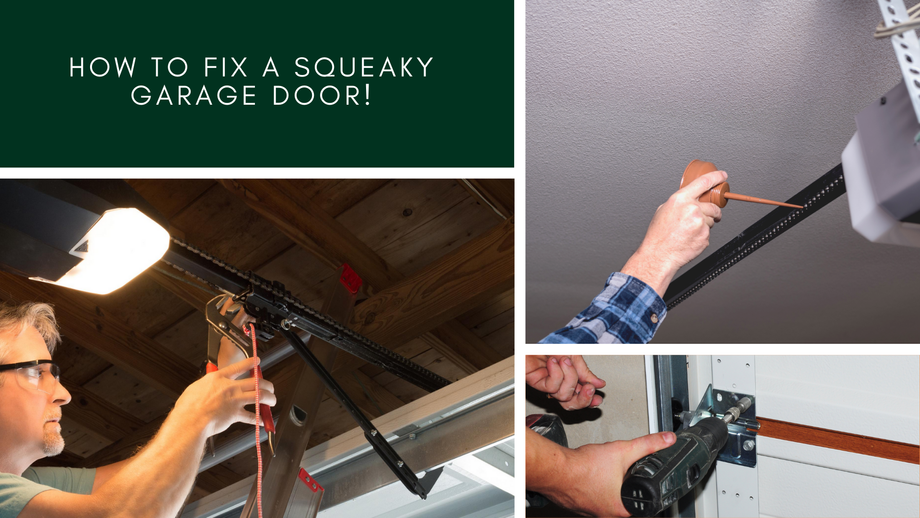Whether you live in a condo or a family home, a noisy overhead garage door can be a nightmare for you and your neighbors. The door's incessant creaking or rattling can disrupt your daily routine, make sleeping difficult, and anger everyone within earshot. If your garage door is making squeaky or grinding noises, making your garage door quieter is actually possible! You can do some things to reduce the noise, and we have outlined them in this blog post.
Tighten all the door and track hardware
Tightening the bolts and screws in your garage door system certainly helps to reduce the noise. You can use tools such as a wrench, a deep socket, or a ratchet to tighten up all of the nuts. Do not forget to take extra precautions when tightening hardware. Make sure the garage door opener is first disengaged to prevent anyone from opening the garage door while you are working. Do not overtighten the carriage bolt heads to prevent stripping the lag screw holes.
Lubricate all garage door parts that move
If your garage door produces a loud squeaking or grinding noise when it opens or closes, the problem could be with the rollers. Take time to lubricate your garage door, paying particular attention to the rollers and other moving parts, including the steel roller shaft, all the hinges, the lift cables at the bottom bracket button, the bearings on the spring system, and the entire length of your garage door spring.
Replace worn rollers with nylon rollers
Your garage door track rollers, particularly if they have unsealed bearing, are bound to wear and tear after years of rolling on the track. The wear can be so extensive that the rollers shake when the door opens and closes. Change your worn rollers into nylon rollers with sealed bearings if they are worn. Nylon rollers are less noisy and do not need periodic lubrication.
Check hinges for signs of wear
Although hinges wear slower than rollers, they make grinding or screeching noises if they are old, wobbly, or defective. Inspect and replace any damaged or cracked hinges as soon as possible. If the hinges are still in good shape, a lithium-based grease can usually be used to reduce the squeaky noise. If none is available, a silicone-based grease can suffice but avoid using WD-40 as it removes the grease rather than lubricates it.
Inspect the garage door opener chain
A slacking garage door opener chain causes abrupt door motions that slam the rollers against the track. Tightening the chain (following the owner's handbook instructions) should solve the issue. If your garage door opener uses a track drive, the next step is to grease the opener track. Grease the threads if your opener is screw-driven.
Adjust torsion springs
If you hear popping noises when your garage door operates, the noise could be coming from the torsion spring. Torsion springs will tighten over time and make loud popping noises as a result. If the torsion spring is still in satisfactory condition, lubricating it may be enough. However, because the spring will need to be handled, it is recommended that you delegate this task to the experts. Adjusting torsion springs is extremely risky. Therefore always get professional assistance and never attempt this work yourself.
Palms Garage doors is a trusted garage door repair and garage door maintenance provider serving the Greater Bay Area from San Francisco to San Jose and up to Oakland. Our services include broken spring repair, cable replacement, opener repairs, new garage door installation, and more. Call (833) 833-3361 today for free estimates!
garage door repair
garage door maintenance
overhead garage door
garage door opener
garage door spring

